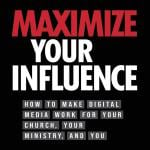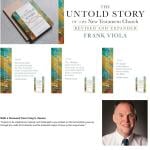Docetism can take subtle forms. We can affirm that Jesus was truly human, with human hands and human eyes and human feet and human hair. But we fall into docetism if we fail to see how specific Jesus’ humanity is. The Son became human, but we need to be more specific if we are going to grasp more fully what Jesus is about. We need to remember the circumstances into which He intervened. We need to remember He became incarnate... Read more

















